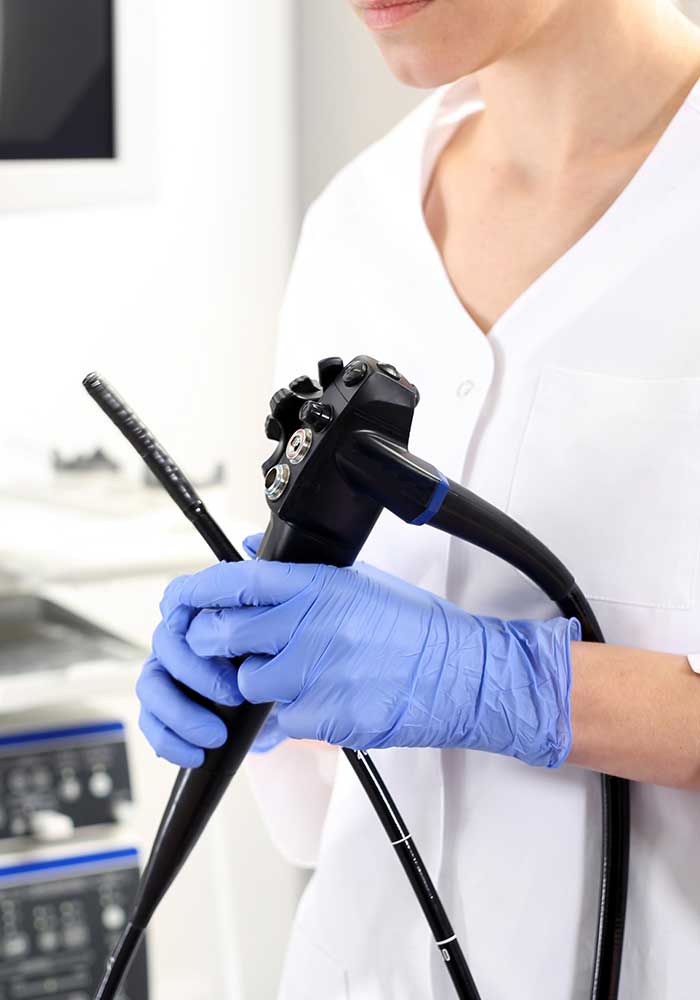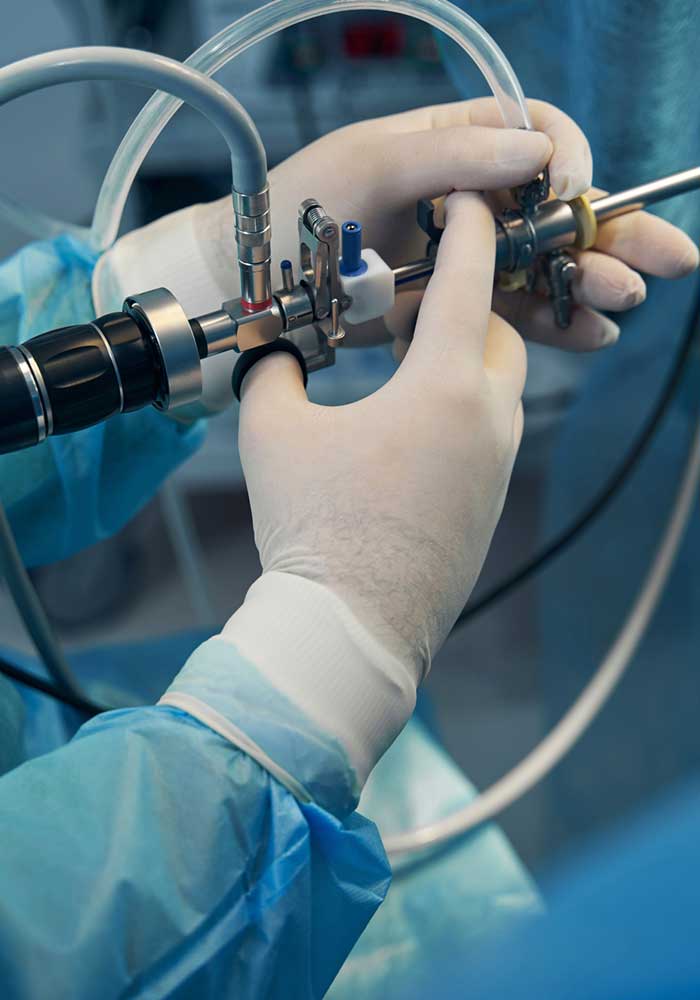GI CONDITIONS
Colorectal Polyps

Years of
Profound
Expertise
With extensive years of expertise, our accomplished Texas gastroenterologists bring a wealth of experience to the field.

Comprehensive Gastrointestinal
Perspective
Our Texas-based gastroenterologists prioritize a holistic approach that encompasses all aspects of your well-being.

Significant
Doctor-Patient Bonds
Our dedicated doctors prioritize your physical and emotional well-being with compassionate and effective care.

Compassionate Client
Support
Our team’s dedication to your well-being ensures a supportive and considerate experience throughout your healthcare journey.

What are
Colorectal Polyps?
Colorectal polyps, often referred to as colon polyps, are a prevalent phenomenon among adults. The term “colorectal” encompasses both the colon and the rectum. Many health conditions that involve the colon also impact the rectum, leading to their combined discussion. A colorectal polyp denotes a growth that emerges in either the colon or the rectum, constituted by a cluster of cells that may develop on the lining of either organ.
Polyps themselves are generally non-cancerous and often remain asymptomatic; nevertheless, addressing colorectal polyps is imperative due to their potential to become cancerous. To confirm suspicions of colon polyps, the gastroenterologists at Specialized Gastroenterology and Medical Associates routinely conduct colonoscopy procedures. For the management of potential colorectal polyps in Texas, kindly request a consultation at the nearest (SGMA) facility to embark on the journey to optimal gastrointestinal health.
Call Us Now
(281) 616-7299
COLORECTAL POLYPS
What Causes Colorectal Polyps?
Colorectal polyps originate from an excessive growth or division of cells. Despite the medical field’s lack of definitive evidence regarding the precise causes, certain associations and risk factors are frequently observed in individuals with colon or rectal polyps.
Certain Hereditary Genetic Conditions can Heighten the Likelihood of Developing Colon or Rectal Polyps. Such Conditions may Encompass, but are Not Confined to:

What are
Common Indications of Colon and Rectal Polyps?
In numerous instances, colon polyps do not exhibit noticeable symptoms. However, if symptoms are present, some prevalent signs of colorectal polyps encompass:
Anemia due to iron deficiency
Fatigue
Lethargy
Abdominal pain
Prolonged diarrhea
Breathlessness
Irregular bowel movements
Presence of blood in stool
If you encounter any of the aforementioned symptoms, are 45 years of age or older, or possess a familial history of colon cancer or colorectal polyps, reach out to our team to learn more about colorectal cancer screenings in Texas.

COLORECTAL POLYPS
What is the Significance of Discovering Polyps During a Colonoscopy?
Unearthing polyps during a colonoscopy is a common occurrence, and more often than not, these polyps are benign (non-cancerous). Typically, polyps encountered during a colonoscopy are extracted in the same procedure (polypectomy) and subsequently subjected to cancer testing. If your colon or rectal polyps are benign, your physician will likely recommend periodic screenings for colon cancer. In the event that a polyp is identified as malignant (cancerous), you and your Specialized Gastroenterology and Medical Associates healthcare provider will collaborate on the best course of action.
The usual approach to addressing colorectal polyps is their removal. After a colonoscopy (or flexible sigmoidoscopy), polyps within the colon and rectum can be excised through a procedure termed a polypectomy. In more severe instances, partial or complete removal of your rectum or colon may be necessary.
Frequently Asked Questions
Colorectal Polyps FAQs


Colorectal Polyps
Receive Care for Colorectal Polyps
Identifying, removing, and assessing colorectal polyps can occur during a standard colonoscopy. Specialized Gastroenterology and Medical Associates is dedicated to providing tailored care to address your unique requirements. To learn further about colon and rectal polyps, their identification, and removal, we encourage you to initiate a consultation with the nearest Specialized Gastroenterology and Medical Associates location today.
Booking
ENHANCING COMFORT AND CONFIDENCE
Reach out with ease for prompt phone consultation or secure an in-person physician appointment effortlessly. Our telephone lines remain consistently accessible, and we also accommodate urgent appointment requests.

Step 01
ARRANGE YOUR APPOINTMENT
Discuss or arrange your personal appointments with our dedicated medical experts. Our team is always available by phone or by email.

Step 02
Medical
Assessment
Procedures involve evaluating and establishing the nature of the gastrointestinal disorder. These stages are crucial in the meticulous examination and diagnosis

Step 03
TAILORED CARE STRATEGY
Taking into account your diagnosis, our expert team will formulate a personalized strategy designed to accommodate your lifestyle.

Step 04
Modified
Supervision
When after care is required, we’ll assess options and determine the best fitting approach. We’ll assist you in coping with your GI condition.
Testimonials
What They Say About
Our Services
Testimonials regarding our services showcase the valuable experiences and feedback shared by our clients, underlining the exceptional quality of care we provide.
James
Johnston
Houston, TX


Following my first scheduled appointment, I departed with a deep sense of satisfaction. Given my age that surpasses 75 years, the necessity for an inaugural discussion becomes even more pronounced, and I distinctly experienced a notable level of ease in conjunction with the profound expertise and admirable manner that he openly displayed.


David
Hanson
Houston, TX


Demonstrating extensive medical knowledge, the physician openly welcomes and invites inquiries from their patients. Personally, I highly recommend considering the services of SGMA, as they exhibit an admirable disposition and employ a reassuring approach that can greatly benefit individuals seeking medical assistance.


Teresa
Smith
Houston, TX


My admiration for SGMA knows no bounds, matched only by my appreciation for their exceptional and cohesive team. Their unique and commendable ability to establish a genuine feeling of comfort stands as a testament to their expertise, a task that presents inherent complexity when dealing with procedures as intricate as Colonoscopy.


Our
Ratings
Contact Us
Have Questions?
Let Us Know
Address
12121 Richmond ave ste 212
Houston tx 77082
Contact Number
(281) 616-7299
Business Hours
8AM-5PM
MON – SUN
Follow Us
Contact Us
Prioritize Your Well-being as a Priority
Regardless of the recency of your symptoms or the duration of your gastrointestinal ailment, expert medical assistance is accessible to alleviate the pain and unease you are encountering. To coordinate a consultation, kindly get in touch with our specialized team through your favored mode of communication; contact information is provided below:
Call Us Now
(281) 616-7299









